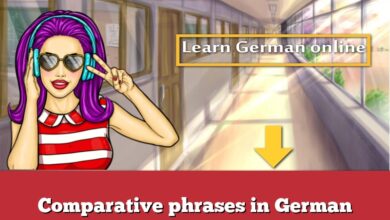Nouns and Articles in German Grammar
der, die, das – Gender of Nouns in German Grammar

Nouns in German Grammar are words that describe beings, places and things e. g. die Frau – the woman, der Bahnhof – the train station,, das Wetter – the weather. German nouns can be used with masculine (der), feminine (die) or neuter (das) articles and they are always written with a capital letter. German noun endings change to match the case they are in.
In the following pages, you will learn to use German nouns and articles in their singular and plural forms as well as in the nominative, accusative, dative and genitive cases.
der, die, das – Gender of Nouns in German Grammar
he gender of German nouns can be identified by the article they take; der for masculine, die for feminine and das for neuter. While native German speakers intuitively know which article to use, it is best for German learners to learn the article together with the noun. Luckily, there are some rules to help you recognise masculine, feminine and neuter nouns in German Grammar.
Example
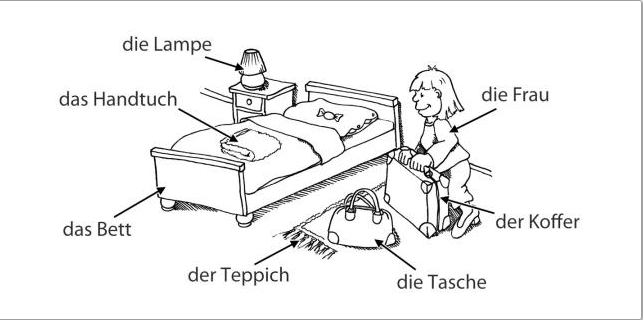
der – Masculine Nouns
This table outlines the rules for the masculine nouns in German
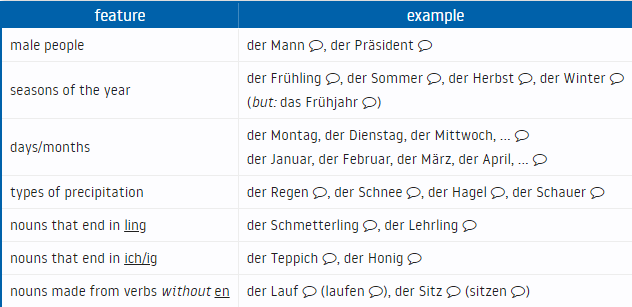
die – Feminine Nouns
This table outlines the rules for the feminine nouns in German
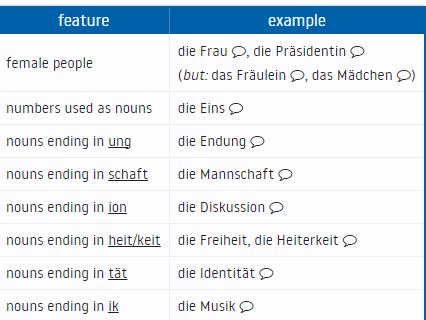
das – Neuter Nouns
This table outlines the rules for the neuter nouns in German.
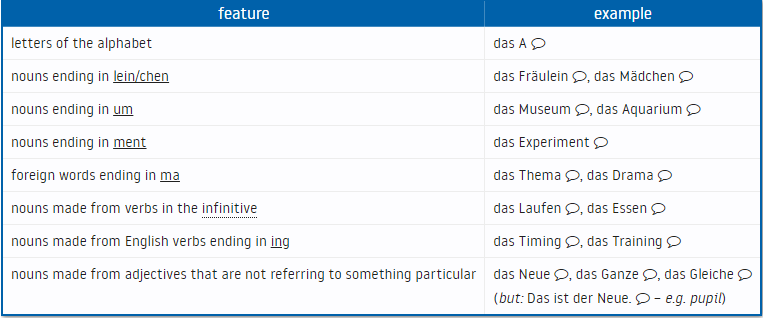
Gender of Compound Nouns
When a noun is formed from several other nouns combined into one word, the last noun in the word determines the gender of the entire word.
- Example: der Tisch .
- das Bein
- das Tischbein
Articles in German Grammar
Articles are used with nouns. They can be definite: der, die, das (the); or indefinite: ein, eine (a, an). In English grammar, the article does not change its form, however, in German grammar, the article changes its form to indicate the gender, number and case of a noun.
Example
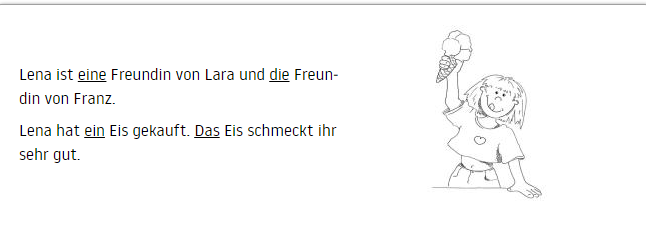
Indefinite Articles
The indefinite articles are ein (masculine, neuter) and eine (feminine). We use the indefinite article:
- when we’re talking about something that is not specifically defined.
Example: Lena ist eine Freundin von Lara . (one of several)
- when we mention something in a text for the first time (introductory)
Example: Lena hat ein Eis gekauft
Definite Articles
The definite articles are der (masculine), die (feminine/plural), and das (neuter). We use the definite article:
- when we’re talking about something specific
Example: Lena ist die Freundin von Franz. . (the only one – they are a couple)
- when we’ve already mentioned something, or assume it to be already known.
Example: Das Eis schmeckt ihr sehr gut.
Declension Table for German Articles
This table provides a simple overview of the declension of definite and indefinite articles the nominative, accusative, dative and genitive cases in German grammar.

Contractions: article + preposition
When a preposition is placed in front of a definite article, the two are contracted into one word. The table below displays a list of the most common preposition and article contractions.
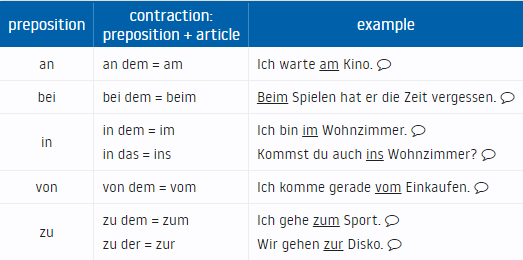
No Article
We generally don’t use any article for:
- names of places
Example: Sie wohnen in Bremen.
- the names of most countries except for e. g. die Schweiz, die Türkei, die USA
Example: Wir machen Urlaub in Österreich. . (but: Wir machen Urlaub in der Schweiz.)
- Equalisations/identifications using the verbs sein/werden
Example: Es ist Juli. .
Mein Bruder will Arzt werden.
- particular concrete abilities
Example: Ich spiele Klavier/Tennis
Leo spricht Japanisch.
- materials/substances e. g. Papier, Holz, Wasser, Milch, Eisen, but only in a general context. Use an article when talking about specific materials.
Example: Papier wird aus Holz hergestellt
Wir müssen noch Wasser kaufen.
(but: Das Papier ist alle./Wo ist das Holz für den Kamin?).
At last you know now how Articles are used with nouns. They can be definite: der, die, das (the); or indefinite: ein, eine (a, an). In English grammar, the article does not change its form, however, in German grammar, the article changes its form to indicate the gender, number and case of a noun. In addition Nouns are words that describe beings, places and things.
Also for more good German lesson you can download the best German App.























